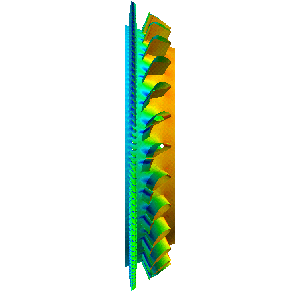EEFAE



Efficient and Environmentally Friendly Aero Engine
Contract no. G4RD-CT-1999-00224
Project no. GRD1-1999-10403
Coordinator: Rolls-Royce plc (UK)
start: March 2000
duration: 48 months (+12 extension)
status: partner
Contractors:
Rolls-Royce (UK), Airbus France (F), Snecma (F), MTU (D), Eldim (NL), Avio Group (I), Howmet (UK), Volvo Aero (S), Luleaa University of Technology (S), ITP (E), Goodrich (UK), Techspace Aero (B), Hispano Suiza (F), Esil (IE), Calidus (UK), INTA (E), Rolls-Royce Deutschland (D), University of Florence DEF (I), Walter (CZ).
Links:
Abstract:
In March 2000, the European Commission launched its largest-ever aero-engine research programme, costing a total of 101 million euro. The purpose of the Efficient and Environmentally Friendly Aero Engine (EEFAE) project is to develop the advanced technology needed to maintain European industry's competitive position as a supplier of advanced turbofan engines for next generation of commercial jet aircraft.
The EEFAE Technology Platform consists of two vehicles involving 15 industrial companies and 2 universities from 9 different European countries. The vehicles will integrate and validate the results from a range of European, national and company funded research projects with the overall objective of bringing demanding technical and environmental benefits to market in half the current time.
The first vehicle ANTLE (Affordable Near Term Low Emission) is focused on providing a short term reduction in fuel consumption, emissions, reliability and cost by providing the technical feasibility of best available component technologies combined with the highest practical pressure ratios. In this project University of Florence is collaborating with Fiat Avio for the development of a new intermediate pressure turbine for the three-shaft engine. For this IP turbine advanced aerodynamic and mechanical solutions will be analyzed.
The second vehicle CLEAN (Component vaLidator for low Environmentally friendly Aero-eNgine) is targeted on significant reduction of emissions and fuel consumption through the full-scale validation of technologies required to develop an advanced performance cycle IRA (Intercooled Recuperated Aero-engine).
Publications:
